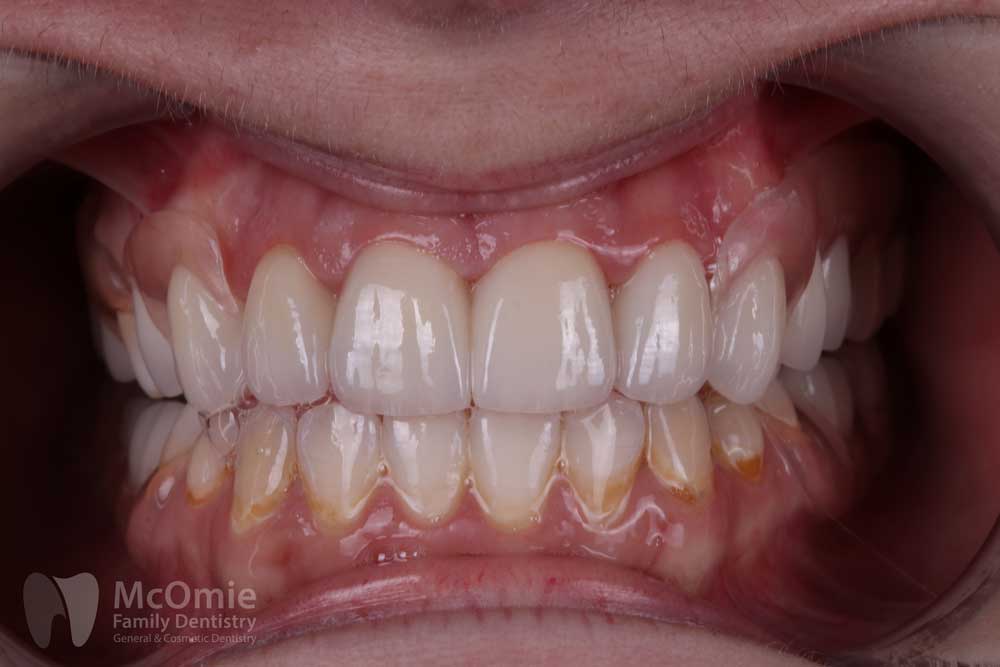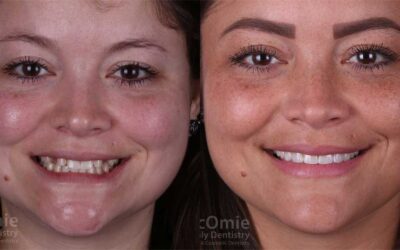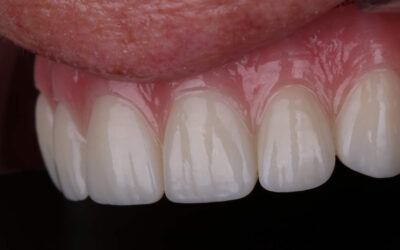If you’re planning on replacing missing teeth in Chattanooga, there’s a good chance that you’ve already heard about dental implants. But what alternatives to dental implants are there? And which ones work?
Although implants are extremely popular and safe, there are still instances where an alternative treatment like dentures may be best. At McOmie Family Dentistry we treat each patient as an individual, reviewing their options with them.
Here are just a few dental implant alternatives you’ll want to know about:
Traditional Dental Bridges
Dental bridges are still extremely common and a popular alternative to dental implants. The uniqueness of a dental bridge is that they can actually be used with natural teeth or a pair of implants. An implant-supported bridge can replace up to 3-4 teeth at a time, whereas traditional dental bridges fill in 1-2 teeth at most.
With conventional dental bridges, either end of the restoration is set on top of healthy adjacent teeth using dental crowns to support a false tooth within the gap. They suspend a pontic/replacement tooth between them, filling in the open area created by the missing tooth. A false tooth is securely held in position using dental crowns, providing a fixed and non-removable option for restoring the smile and oral function.
In order for bridges to be successful, you need a tooth on either side of the missing tooth. Which is why single dental implant treatment is sometimes preferred. If Dr. McOmie feels that it’s best to leave your natural teeth intact, the implant procedure might actually be less invasive.


Partial Dentures
With partial dentures, a dentist can replace just the missing teeth without removing any healthy ones. Partials wrap around healthy tooth structure for stability throughout the day, filling in one or more teeth here and there, depending on which ones are missing. Sometimes we can even add teeth to partial dentures if additional ones need to be removed.
Most partials have a durable metal base with metal clasps that wrap around the healthy adjacent teeth. This allows the framework to be more streamlined instead of covering the entire roof of your mouth.
Other partials are flexible, with an acrylic base that blends in more with your gum tissues.
Partial dentures can be worn for several years. They’re ideal when there are too many teeth to replace with fixed bridges, or patients don’t qualify for a traditional bridge. You can even use them if you plan to get dental implants at a later date.

Flippers
Let’s say you’re planning to get a dental bridge or single tooth dental implant sometime in the future, but just not yet. Flippers are a type of temporary artificial tooth replacement that you can wear in the meantime. They’re like a partial, but they only replace one or two teeth. Usually, one in the front of your mouth that’s been knocked out from an injury or removed during emergency treatment.
Flippers are not durable like bridges or partial dentures. But they do serve an aesthetic purpose and help fill visible gaps in your smile when you need to buy some time. But you usually can’t eat with them. That’s why flippers tend to be used on younger patients until their mouths are fully developed (and a long-term solution can be used.) You won’t get as much use out of flippers as you do with partials, but they are ideal for temporary purposes.

Traditional Dentures (“Plates”)
Full-mouth dentures are one of the most common treatments for replacing missing teeth. Gum disease can lead to significant oral health issues, often resulting in the need for traditional dentures. Not only are they fast to make, but they’re also extremely affordable and dentures have become much better over the years. They cover the entire upper or lower jaw, resting on top of your gum tissue.
If you have any existing teeth, they will need to be removed before dentures can be worn. Otherwise, you’ll want to get partial dentures that wrap around adjacent healthy teeth.
Unfortunately, a lot of people think that their dental woes will be over once and for all after they get dentures. What they find is that this tooth replacement isn’t anything like having natural teeth. They reduce biting and chewing pressure, are more difficult to speak with, and cover the roof of your mouth, which alters the way your food tastes.
All of that being said, dentures are an economical option for someone wanting a quick tooth replacement.

Implant-Supported Dentures
Although this type of restoration still uses dental implants, it is a hybrid appliance that mixes traditional dentures with conventional or mini dental implants.
Also called overdentures or snap-on/clip-in dentures, this prosthesis is like a conventional denture that snaps onto corresponding dental implants. Normally only 2-4 implants are needed. They provide an anchor to support the plate, so that denture wearers don’t have to rely on adhesives or pastes to keep their appliance in place all day long.
Overdentures are still removable, so you’ll take them out at night before you go to bed. And if we’re using mini dental implants, you might be able to complete the process in just one day.

Is Dental Implant Treatment Better?
Sometimes people are intrigued about alternatives to dental implants because they have misconceptions about the dental implants themselves. Whether you’re replacing several existing teeth or just one of them, the process of getting dental implants truly offer the best long-term solution for tooth replacement. Dental implants or alternatives are crucial for preserving oral health. Not only are they non-invasive to neighboring teeth, but they also look and feel like the real thing, too. But most of all, these replacement teeth are capable of lasting the rest of your life. They offer an amazing return on investment.
Before you replace missing teeth, plan to meet with Dr. McOmie to discuss the pros and cons of each option. That way you can feel confident choosing the best replacement tooth for your needs, budget, and expectations.
Restore Your Smile at McOmie Family Dentistry
McOmie Family Dentistry in Chattanooga offers a wide variety of treatments for replacing missing teeth. Whether you’re looking for dental implant alternatives or want something that can last for life, we’re committed to providing you the best care possible. Dr. McOmie has transformed thousands of smiles throughout his career. If you have questions about implant therapy or want to discuss what’s best for your situation, please give our Chattanooga dental office a call.




